Suchergebnisse für "Factsheet: Energietechnologien gestalten, die für alle sinnvoll und nutzbar sind"
IEA ECBCS Annex 49 Midterm Report (2010)

Low Exergy Systems for High-Performance Buildings and Communities
Englisch
Eco-Services
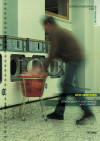
Strategies for sustainable development
Forschungsforum
4/1999
Herausgeber: BMVIT
Englisch, 6 Seiten
Downloads zur Publikation
Webinar: PVT Certification - lessons learnt when certifying PVT products
9. April 2019
online
The webinar gives an overview of the Photovoltaic/thermal Systems (PVT) certification.
solar4.alpine
solar4.alpine - an integrated concept for an ecological alpine refuge hut based on solar energy
EASEY - Ecological And Social EfficiencY
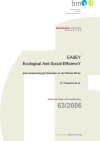
eine Anwendung als Subindex an der Wiener Börse
Schriftenreihe
63/2006
R. Paulesich et al.
Herausgeber: BMVIT
Deutsch, 112 Seiten
Downloads zur Publikation
Smart Metering im Kontext von Smart Grids
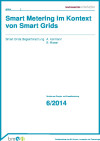
Smart Grids Begleitforschung
Schriftenreihe
6/2014
A. Kollmann
Herausgeber: BMVIT
Deutsch, 29 Seiten
Downloads zur Publikation
Building With Renewable Raw Materials
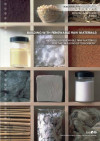
Indigenous Renewable Raw Materials for the "Building of Tomorrow"
Forschungsforum
4/2002
Herausgeber: BMVIT
Englisch, 6 Seiten
Downloads zur Publikation
Teilnahme am IEA Solar Heating and Cooling Programm Task 21

Daylight in Buildings
Schriftenreihe
18/2001
Deutsch
EM Städte - Monitoring and evaluation of urban energy flows
In the first phase of the project, the data source of the energy statistics will be analyzed. Based on the findings of the analysis a methodology on build up regional energy balances will be developed. The methodology will be integrated into the Senflusk tool and tested on five reference cities in Austria.
Urbane GmbA - Urban potential of greenable area in the obscured stock
Urbane GmbA aims to explore and assess the potential of greenable area from building and obscured stock (vertical and horizontal areas) in Vienna, to apply currently available survey instruments and to show research and development needs.
Product Service Systems Water
Based on former FdZ projects in the area of PSS, EMA and Zero Emission PSS Water develops and realises a guideline with which sustainable water management in industry and public utiliies as a service can be offered.
Sustainability Skills - A qualification programme for founders of new businesses
A modular and web-based "Sustainability Skills" qualification programme on how to think, plan, and act in terms of sustainability and how to successfully apply these skills in a business environment.
Schiestlhaus, Hochschwab

An integrated (overall) concept for an ecological alpine refuge hut based on solar energy
Energy Efficient Smart Metering Infrastructure
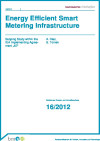
Scoping Study within the IEA Implementing Agreement "4E"
Schriftenreihe
16/2012
A. Diaz, S. Tomek
Herausgeber: BMVIT
Englisch, 87 Seiten
Downloads zur Publikation
Demand Response Potential of the Austrian industrial and commerce sector
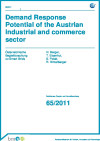
Österreichische Begleitforschung zu Smart Grids
Schriftenreihe
65 /2011
H. Berger, T. Eisenhut, S. Polak, R. Hinterberger
Herausgeber: BMVIT
Deutsch, 291 Seiten
Downloads zur Publikation
Multimedia
DDM Feldkirchen
Demonstration of digitalization measures in heating networks using the example of Feldkirchen district heating network
Energy Workshop Northern Waldviertel

A local " integrated" energy program - successful implementation through research cooperation
Forschungsforum
1/1996
Herausgeber: BMVIT
Englisch, 6 Seiten
Future-Oriented Products And Services
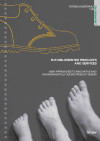
New Approaches to innovative and environmentally sound produc design
Forschungsforum
1/1998
Herausgeber: BMVIT
Englisch, 6 Seiten
Downloads zur Publikation
ENUMIS - Energetic effects of urban manufacturing in the city
The project examines the challenges of urban manufacturing (UM) from the energy perspective and shows opportunities arising from the implementation of UM concepts for the future design of sustainable energy systems for cities.
